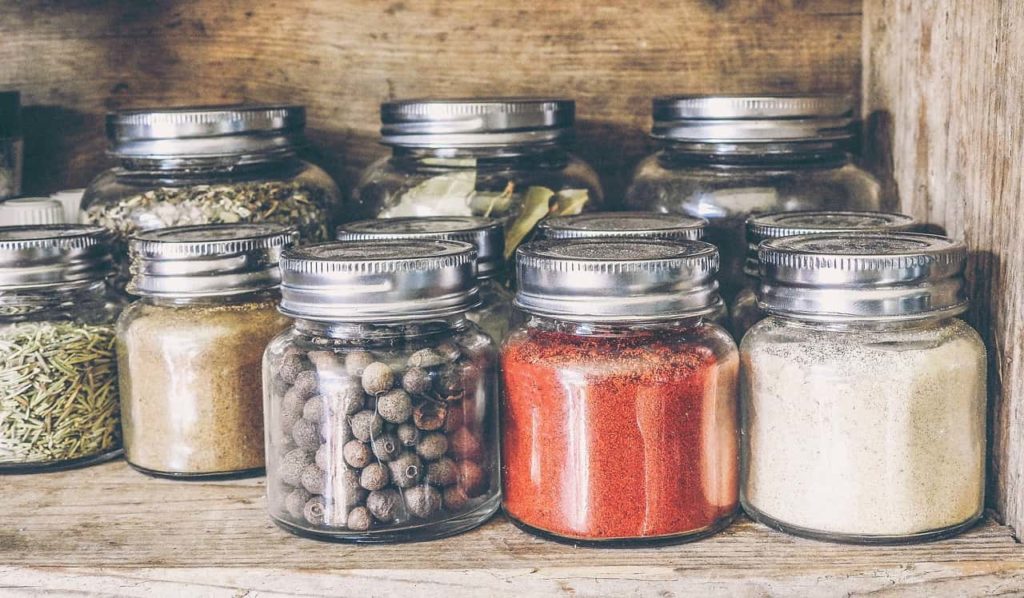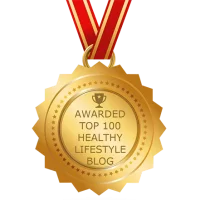(Original posted in 2015 and updated 6/30/23 by Dr. Cynthia)
- Herbs and spices that help reduce anxiety include: Passionflower, Kava Kava, Lavender, Lemon Balm, Turmeric, Basil, L-theanine, and Nutmeg.
- Herbs and spices are proven effective at reducing stress and anxiety when used at the correct dosage and are correctly matched by a holistic doctor to fit your needs.
- Dr. Cynthia is a holistic cardiologist and functional medicine doctor in Burbank and Valencia, California, who treats the mind, body, and lifestyle behavior to improve overall health and wellbeing.
- Medicinal properties of herbs, and lack of serious side effects, make them a good alternative to conventional drugs.
- Consult your medical practitioner before taking any herbs if taking prescription medications for sleep, anxiety or depression, or if taking blood thinners.
Are you upset about money, health, work, family, friends, love, and/or other challenges in your life right now? Are you feeling frustrated and wish you could just find a way to relax? Do you find that your heart is usually beating fast, that your breathing is shallow and rapid, your mind always imagining doom, are you suffering from headaches/migraines, do you feel dizzy or brain fog, or having trouble sleeping? You may be suffering from stress and/or anxiety.
According to the Anxiety and Depression Association of America, anxiety disorders are the most common mental illness in the U.S. and affect 40 million adults. Generalized anxiety disorder, on its own, affects 6.8 million adults, with women twice as likely to be affected as men. Whether you have full-blown anxiety disorder or are just freaking out at the moment, you may not want to try medication – at least not yet.
At Dr. Cynthia’s cardiology office we see many patients who complain of chest pain and shortness of breath symptoms related to anxiety that show no cardiovascular issues. Dr. Cynthia treats these patients with a holistic approach focusing on mind, body, and lifestyle behavioral changes to improve overall health and wellbeing. Paramount to addressing anxiety is the importance of healing the Gut Brain axis. If you are searching for a holistic doctor come see Dr. Cynthia.
Dr. Cynthia believes there are many safe non-drug remedies for anxiety you can try, such as mind-body techniques, supplements, calming teas, following a healthy diet, and adding natural herbs with medicinal benefits.
Herbal medicine has been around for thousands of years, humans have been using spices on their foods as far back as 50,000 B.C. Whether you’re suffering from a lifelong illness of stress and anxiety or simply going through a stressful period in your life, natural herbs can help. The herbs’ medicinal properties, as well as their lack of serious side effects, have made them a good alternative to conventional drugs.
Anxiety sufferers should try the following medicinal herbs to help naturally cure or treat their anxiety. These herbs have been proven effective at reducing stress and anxiety:
- Passionflower is considered a mild sedative and can help promote sleep. Studies show that passionflower helps ease symptoms of anxiety, irritability, agitation, and depression. Passionflower is believed to increased Gamma Aminobutyric Acid (GABA), a chemical that down regulates some brain activity, making you feel more relaxed. Try one cup of passionflower tea 2-3 times daily or 20-40 drops of liquid extract per day.
- Kava kava is one of the most famous anti-anxiety herbs. Kava kava is more sedating and hypnotic than passionflower, so use with caution; some people find that it causes drowsiness or feeling sleepy. It has an interesting taste that almost numbs your mouth, and has a long tradition of ritual use in Polynesia as well as medicinal use for its sedative and pain-relieving properties. Try kava kava as a tea or extract about 3-4 times per week. However, if you have liver problems do not use kava kava, recent studies suggest that over-consumption may damage the liver.
- Lavender is effective at reducing irritability and anxiety, promoting relaxation, a sense of calmness and sleep. A 2010 multi-center double-blinded randomized study compared lavender oil to anti-anxiety medication lorazepam and found that both were as effective against generalized and persistent anxiety. While lavender can be consumed in a tea, it may work best as an essential oil, which also has no sedative effects. Try using the oil as an aromatherapy solution.
- Lemon Balm usually found in combination with other herbs, lemon balm also has anti-anxiety powers on its own. Use in aromatherapy, try 300-500 mg of dried lemon balm three times daily, or ¼ to 1 teaspoon of dried lemon balm herb in hot water for a tea 3 times a day.
- Turmeric is one of the best herbs to consume or your overall health and wellness. It contains high levels of antioxidants, which improve blood flow to the brain and also improve heart health. Turmeric has anti-inflammatory properties and have a positive impact on depression. Turmeric can reduce stress and increase longevity of the brain and heart. Consume ¼ teaspoon a day of organic turmeric.
- Basil is a natural immune-boosting herb, high in nutrients that improve overall cognitive function and can help reduce high amounts of stress.
- L-theanine is a water-soluble amino acid found mainly in green tea and black tea and is also available as a supplement. Studies have found that l-theanine acts directly on the brain, helping reduce stress and anxiety without causing drowsiness. A typical cup of black tea contains only about 25 mg of l-theanine and green tea only about 8 mg. A cup of tea a day may be soothing and calming, but if you want a more potent effect you can try a supplement of 200 mg a day.
- Nutmeg is a relaxant spice, used in folk medicine to relieve anxiety and depression. A little o this spice goes a long way, so don’t overdo it, a pinch here and there is all you need.
Like all medicinal recommendations, these herbs may not be right for everyone, but they can be tremendously helpful when they’re used at the correct dose and are correctly matched to fit your needs. Consult first with your medical practitioner before taking any herbs if you’re taking prescription medications for sleep, anxiety, or depression, of if you’re taking blood thinners.






